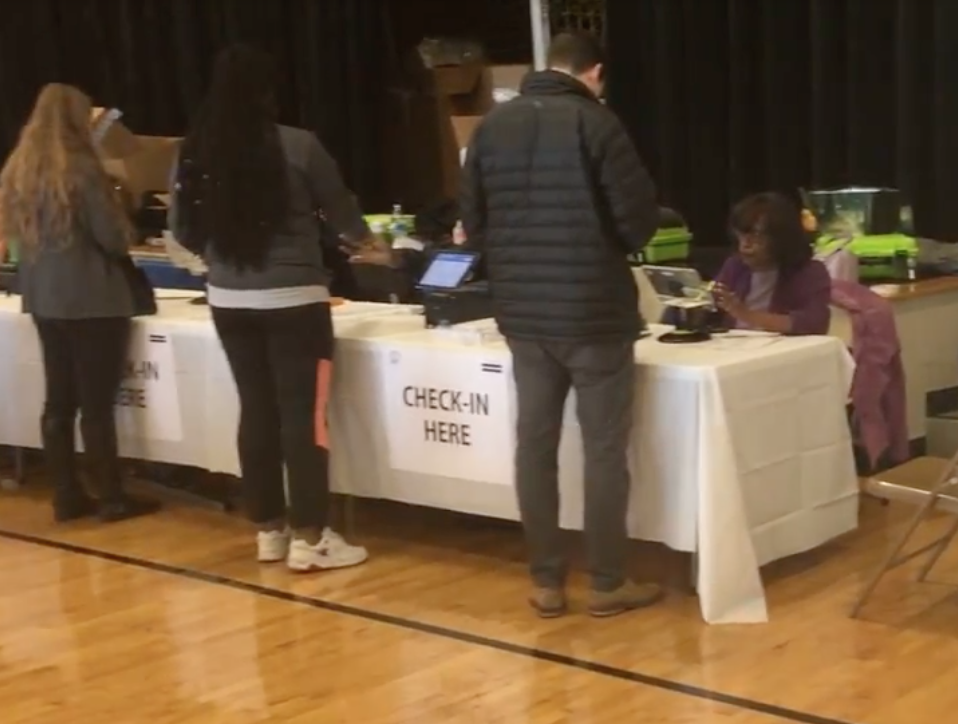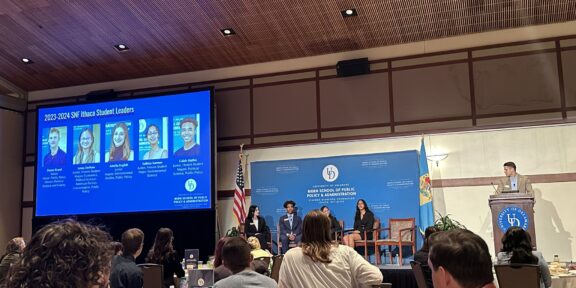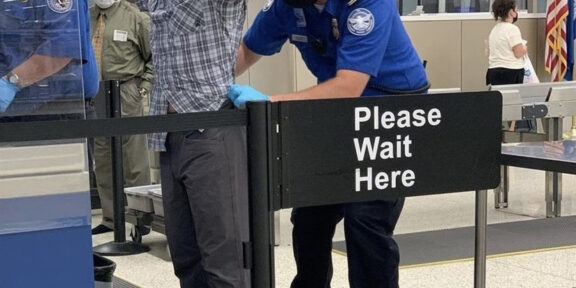Every year, women in a movement that morphed out of American Playwright Eve Ensler’s award winning play, The Vagina Monologues, command center stage in venues across the globe to provoke serious thought about violence against women and to raise money to stop it.
Twelve years after the first celebration in New York City, V-Day has become a worldwide movement bent on ending violence against women and girls. It is active in 130 countries including the United States, Great Britain, Korea, Japan and the Democratic Republic of Congo.
Ensler told a New York Times writer in January that the movement has raised $70 million over the years, most of it from performances of The Vagina Monologues, a 1996 play comprised of short monologues about the vagina. Ensler said she wrote the script after interviewing more than 200 women about their bodies.
The movement has found fertile ground here in Washington, with performances scheduled on April 27 and 28 at 8 p.m. in the Rock and Roll Hotel nightclub at 1353 H Street NE. Tickets are on sale for $20 and may be purchased on the Rock and Roll Hotel Web site. The event will benefit Helping Individual Prostitutes Survive (HIPS), an organization focused on promoting healthy alternatives to reduce the harmful consequences associated with drug use and other high-risk activities.
The coordinator, Faith Alice Sleeper, 26, said she chose HIPS as the event beneficiary, because they seem to be an organization focused on assisting their primary group rather than preaching to them.
“They’re not trying to get across an agenda,” she said. “I think it’s good that they don’t judge, and that they just help.”
There was an event scheduled at the University of the District of Columbia for 7 p.m. on April 29. However, event coordinator Nikki Feagin said the event was canceled due to the past winter weather conditions that caused students to miss classes and fall behind in their schoolwork.
The Vagina Monologues, as a form of artistic expression, includes a collection of speeches
performed by women. It reflects women’s triumphs and struggles with intimacy, sexual discovery and abuse. Through its messages, it seeks to inspire women to take control of their sexuality and combat both physical and mental violence suffered by women and girls.
Men have also been encouraged to take part in the celebration as “V-Men,” sharing their perspectives on the issues affecting women all over the world.
On April 16 and 17, UMD Vagina Monologues, an organization on the University of Maryland College Park’s campus, hosted “A Memory, A Monologue, A Rant, and a Prayer,” in the Margaret Brent Room at their Adele H. Stamp Student Union. The play is a compilation of monologues by women and men promoting the collaboration of women and men to end violence against women and girls.
“TVM [The Vagina Monologues] is so important, because it raises issue of sexuality, of abuse and assault, and of womanhood,” said Deborah Kadishelby, 23, a senior art studio and English double major and third year member of UMD Vagina Monologues. “So many women never think about any of the issues brought up in the show.”
Worse still, men don’t think about these issues, Kadishelby said. “I think that every monologue touches on some facet of being female, or even feminine, and in our society that’s seen as a weakness, as a negative,” she said. “TVM is about empowerment and awareness.”
This celebration of the body part so many people are uncomfortable to say, the vagina, begins in February every year. The Warehouse Theater on New York Avenue in Northeast Washington hosted a performance on Feb. 20 with monologues from a racially diverse group of 18 women.
More than 200 people came out for the play, with a cast of all members from the lesbian community. Proceeds of the event were to benefit V-Day and the D.C. Center’s GLOV program, which is a program focused on ending violence against members of the Lesbian, Gay, Bisexual and Transgender community.
The coordinator of the event, Breeze Bennett, 23, included a new monologue about the transgender community. “They Beat the Girl Out of My Boy…Or So They Tried,” is a tribute to members of the transgender community and was inspired by the stories of male to female transgender women, she said.
“There is no piece that is exclusively heterosexual or completely homosexual,” she said. “There is room for us all, and we can all connect.”
Bennett said that criticism of the Vagina Monologues, that it is anti-male and anti-heterosexuality, is a part of a countermovement. She added that despite this, those involved in the V-day movement will succeed at getting their messages across.
“It’s a culture war, and progress will be a breakthrough, not a cake walk. But we are vagina warriors,” she said.
For more information and listings of other V-day events visit vday.org





